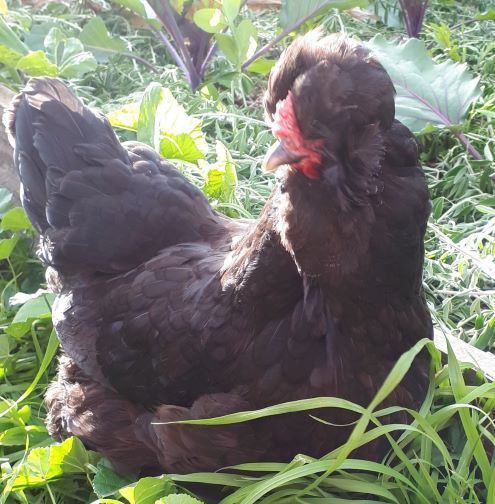Dr Lou Baskind, District Veterinarian Form South East Local Land Services, joined the small farms network for a webinar about keeping backyard chickens.
Key messages:
- All animals under human control have the right to minimum animal health standards. This is called the five freedoms model.
- To thrive, laying hens need access to clean, cool water - don’t forget that water will freeze in winter in cooler climates and should be checked daily.
- A ration composed of energy, protein, Calcium and micronutrients is essential. Inadequate protein can lead to nutritional stress, which can cause feather pecking, reduced egg laying and poor immunity. Check the protein content of your feed is adequate. 16% protein is needed for adult layers.
- Provide a range of Calcium sources for your chickens. It takes 15 hours for a chicken to produce an egg and egg formation usually occurs overnight. If there is insufficient Calcium in the blood it can be mobilised from the bones causing stress for the bird. Calcium should be provided in lots of different sizes. Some examples are clean and dry crushed egg shells, crushed oyster shells and limestone.
- Only use registered chemicals for treating worms, lice and red mite. Always observe the withholding periods on the packet. Off-label use of other vermicides can be dangerous for your chickens and human health because there are no recommended dose rates or with holding periods. A veterinarian is best placed to advise on the use of chemicals for parasite management in your flock. They can give an off-label authority if you need to use chemicals that are not registered for chickens. Lice from chickens will not affect humans.
- Chickens need the right size and shape of perch (flat) for the size of their feet. Do not use round perches such as dowels. The chook needs to be able to fit their whole foot onto the perch so they can rest properly.
- Daylight hours affect the natural laying behaviour of chickens. If your chicken is not laying in winter that is most likely because of their natural breeding rhythm.
UPDATE: Pestene Insect Powder is a registered chemical for lice in chickens and can be safely used. Pestene is best used as a preventative and can be added to the dust bathing area or directly applied to the chickens.
Registered chemicals for poultry
|
Product Name
|
Registered for laying poultry
|
|
Pestene (sulphur and rotenone dusting powder)
|
YES
|
|
Avitrol Bird Mite and Lice Spray
|
NO
(Caged birds)
|
|
Avian Insect Liquidator
|
NO
(ornamental and caged birds)
|
|
Avimec (Ivermectin)
|
NO (budgerigars)
|
|
Fido's Fre-Itch Rinse Concentrate for Dogs and Cats
|
NO
|
|
Ivermectin*
|
NO
|
|
Fipronil (Frontline Spray Flea and Tick Control for Cats and Dogs)
|
NO
|

Further information
Essentials for Backyard Chicken Keeping and Health by Dr Lou Baskind
DIY rodent free chicken feeder from Gardening Australia
NSW Department of Primary Industries Poultry Fact Sheets
The Queeensland Department of Industry has published a series of articles relating to poultry diseases and health. Follow the links below to find out more information.
Moulting and the laying hen
Feather loss not related to moulting